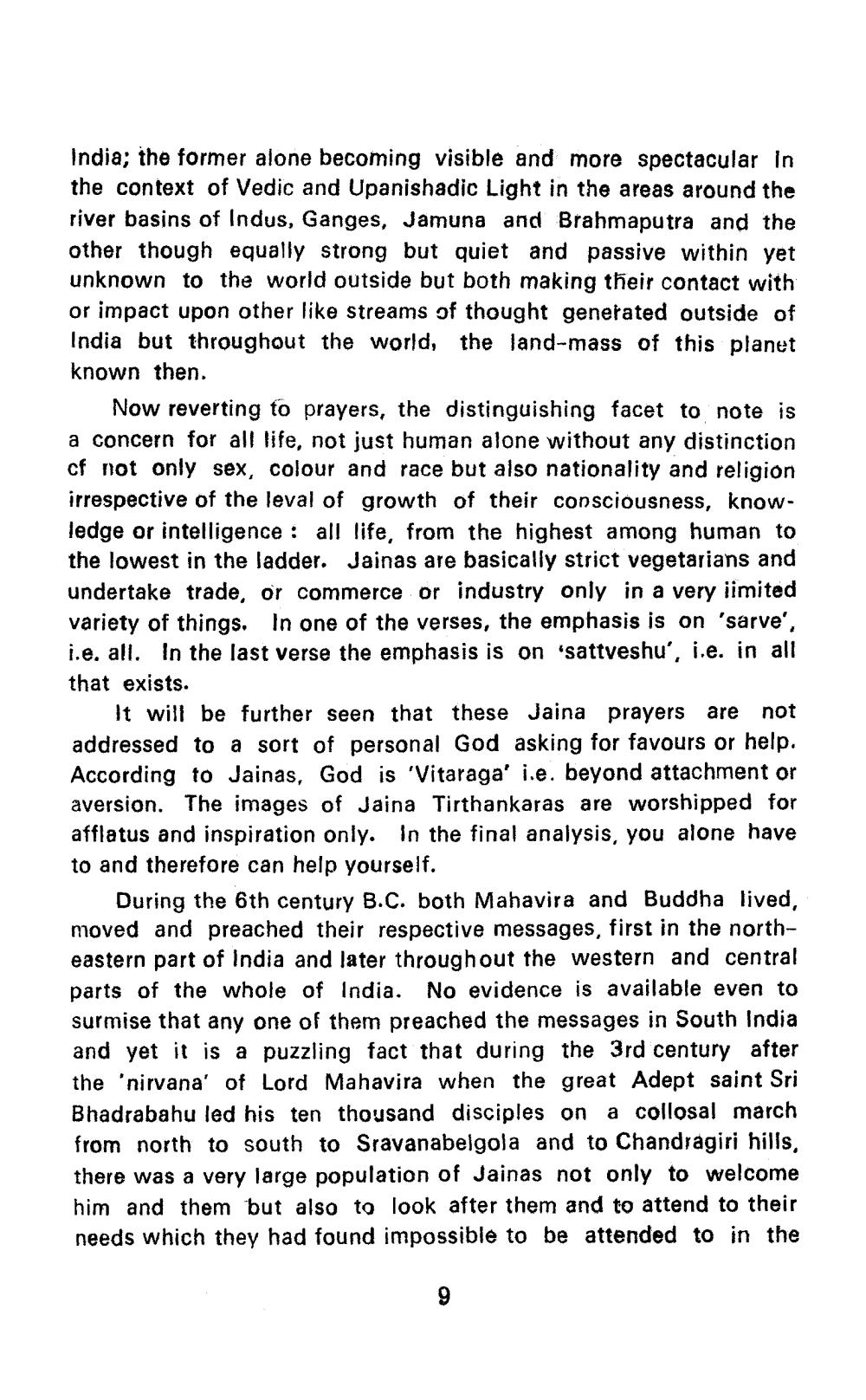________________
India; the former alone becoming visible and more spectacular in the context of Vedic and Upanishadic Light in the areas around the river basins of Indus, Ganges, Jamuna and Brahmaputra and the other though equally strong but quiet and passive within yet unknown to the world outside but both making their contact with or impact upon other like streams of thought generated outside of India but throughout the world, the land-mass of this planet known then.
Now reverting to prayers, the distinguishing facet to note is a concern for all life, not just human alone without any distinction cf not only sex, colour and race but also nationality and religion irrespective of the leval of growth of their consciousness, knowledge or intelligence : all life, from the highest among human to the lowest in the ladder. Jainas are basically strict vegetarians and undertake trade, or commerce or industry only in a very iimited variety of things. In one of the verses, the emphasis is on 'sarve', i.e. all. In the last verse the emphasis is on 'sattveshu', i.e. in all that exists.
It will be further seen that these Jaina prayers are not addressed to a sort of personal God asking for favours or help. According to Jainas, God is 'Vitaraga' i.e. beyond attachment or aversion. The images of Jaina Tirthankaras are worshipped for afflatus and inspiration only. In the final analysis, you alone have to and therefore can help yourself.
During the 6th century B.C. both Mahavira and Buddha lived, moved and preached their respective messages, first in the northeastern part of India and later throughout the western and central parts of the whole of India. No evidence is available even to surmise that any one of them preached the messages in South India and yet it is a puzzling fact that during the 3rd century after the 'nirvana' of Lord Mahavira when the great Adept saint Sri Bhadrabahu led his ten thousand disciples on a collosal march from north to south to Sravanabelgola and to Chandragiri hills, there was a very large population of Jainas not only to welcome him and them but also to look after them and to attend to their needs which they had found impossible to be attended to in the




